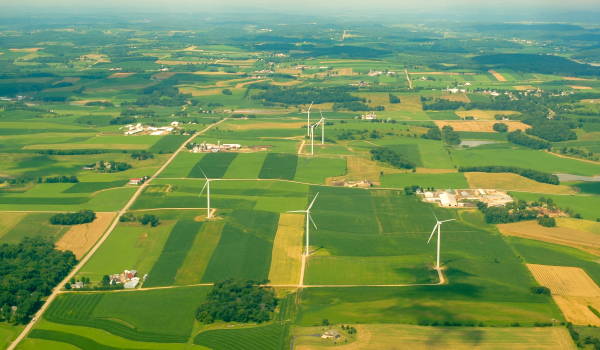FEWscapes is a research and engagement project to advance knowledge and support decision-making for food, energy, water, and ecosystem security in the Upper Mississippi River Basin. It is led by a diverse team of researchers and extension specialists from University of Wisconsin-Madison, including several Nelson Institute faculty, and funded by the National Science Foundation.
The project combines ecosystem and economic modeling, policy and social research, and co-learning with stakeholders to discover new insights that can inform decisions for a desirable future with resilient food, energy, water, and natural systems. Learn more about FEWscapes on the project’s new website and read this blog post on reasons to get curious with them over the next few years.

FEWscapes is a research and engagement project to advance knowledge and support decision-making for food, energy, water, and ecosystem security in the Upper Mississippi River Basin.
It is led by a diverse team of researchers and extension specialists from UW-Madison, including several Nelson Institute faculty, and funded by the National Science Foundation.
The project combines ecosystem and economic modeling, policy and social research, and co-learning with stakeholders to discover new insights that can inform decisions for a desirable future with resilient food, energy, water, and natural systems.
Nelson-affiliated faculty include lead principal investigator Chris Kucharik (agronomy) and Steven Loheide (civil and environmental engineering), who are both involved in the project’s modeling component. Adena Rissman of forest and wildlife ecology is leading the policy and social research. Nelson alumni Rebecca Power (E&R MS ’17) and Jenny Seifert (E&R MS ’11) of Extension’s Natural Resources Institute are leading the project’s stakeholder engagement.
Learn more about FEWscapes on the project’s new website and read this blog post on reasons to get curious with them over the next few years.